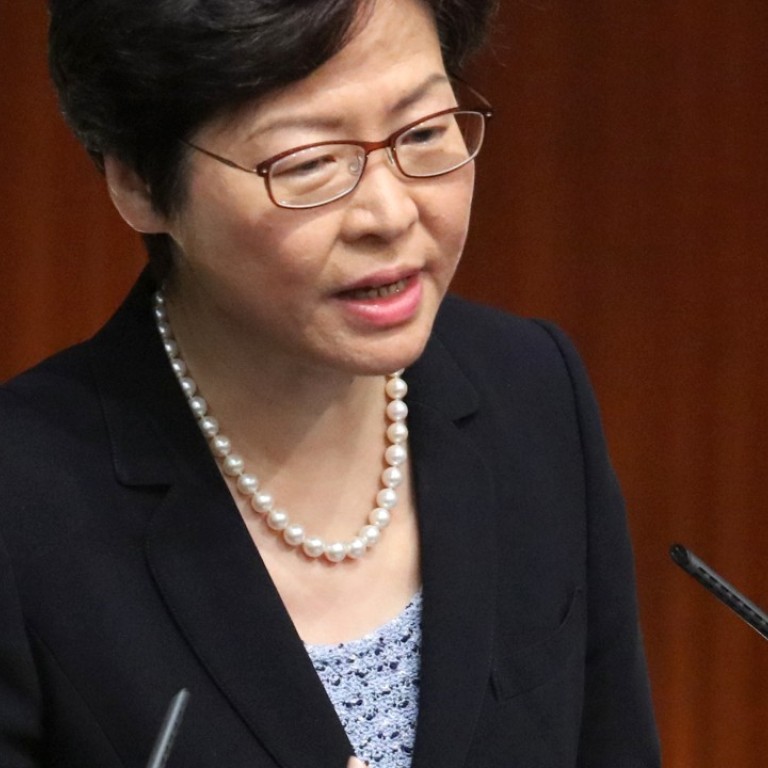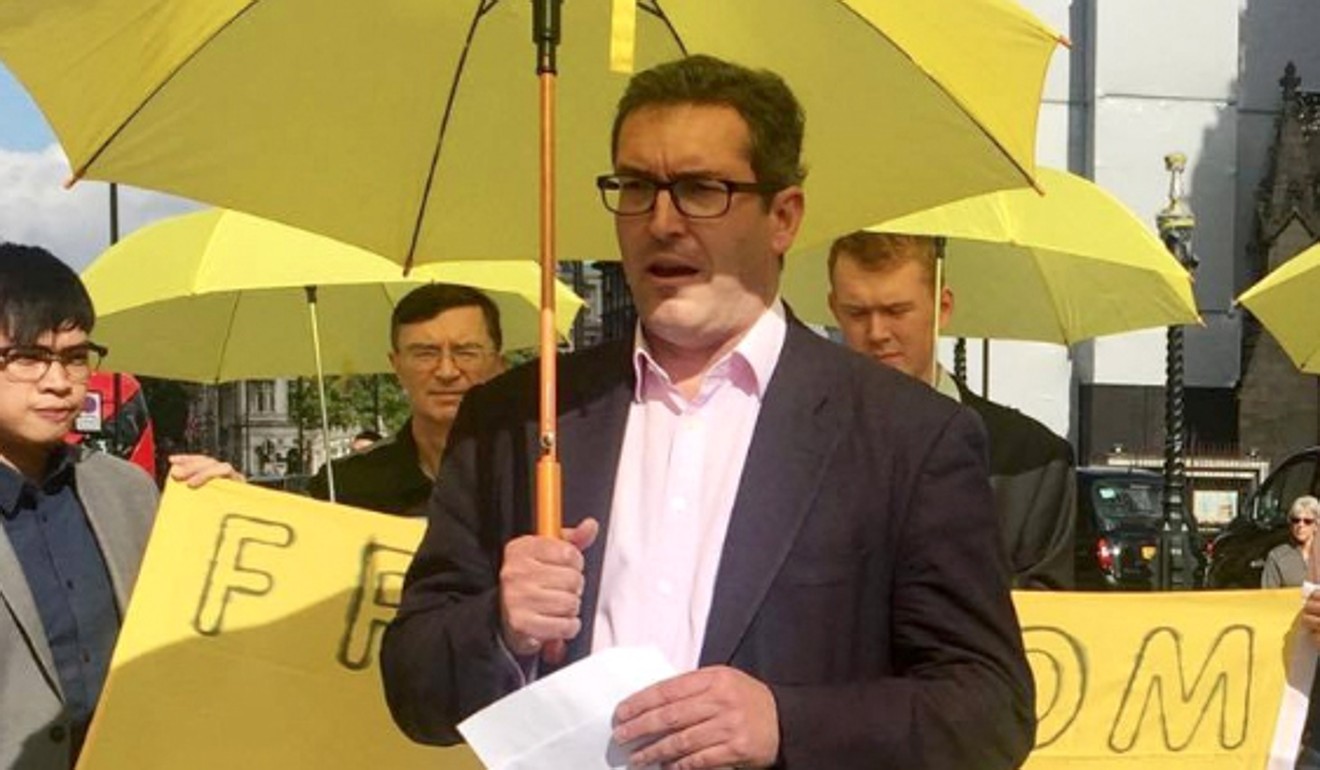
Beijing runs Hong Kong’s foreign affairs, says Carrie Lam, after British politician barred from city
Chief executive says city’s high degree of autonomy does not apply in all respects, adding that British commentators ‘very unfair to Hong Kong’
Beijing runs Hong Kong’s foreign affairs and the Basic Law does not give the city a high degree of autonomy in every respect, the city’s leader said on Thursday, after a British human rights campaigner was turned back at immigration.
UK Foreign Secretary Boris Johnson said the government would seek an “urgent explanation” from the Hong Kong and mainland governments about what happened, and said Hong Kong’s rights and freedoms should be “fully respected”.
Hong Kong admonishes US panel for calling future of ‘one country, two systems’ increasingly uncertain
On Thursday, Lam said she could not reveal why Rogers was denied entry. But governments everywhere have discretion over who is allowed in and who is not, she said.
“Some commentators and politicians in Britain have been very unfair to Hong Kong,” she said on a radio programme.
“They have attacked our legal system, and said that the judges have been interfered with politically. They have totally forgotten that we have an independent judiciary.”
Asked if Beijing made the decision to bar Rogers from Hong Kong, Lam said: “I can’t reveal the details. But under the Basic Law, the central government is responsible for foreign affairs. I hope that everyone can understand that.”
“You need to look at whether the immigration process involves foreign affairs,” she said.
Article 2 of the Basic Law, the city’s mini-constitution, states that the mainland’s national legislature “authorises” the city to “exercise a high degree of autonomy and enjoy executive, legislative and independent judicial power, including that of final adjudication, in accordance with the provisions of [the Basic Law].”
Rogers said shortly after his removal from Hong Kong soil that the refusal showed “there is a problem with ‘one country, two systems’”. He was referring to the arrangement under which Beijing has run the city since it was handed from British to Chinese rule in 1997.
Rogers arrived at Hong Kong International Airport on Wednesday. But immigration officers refused to let him enter the city, and put him on a plane to Thailand, from where he was to head back to London.

On top of concerns that he would visit the jailed trio, Rogers said Chinese officials had also accused him of representing the Conservative Party on his trip and intending to involve himself in the city’s politics.
Rogers denied that.

